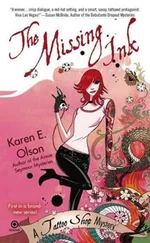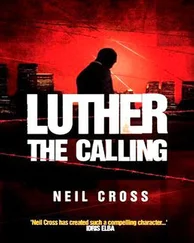Neil Olson - The Icon
Здесь есть возможность читать онлайн «Neil Olson - The Icon» весь текст электронной книги совершенно бесплатно (целиком полную версию без сокращений). В некоторых случаях можно слушать аудио, скачать через торрент в формате fb2 и присутствует краткое содержание. Жанр: Триллер, на английском языке. Описание произведения, (предисловие) а так же отзывы посетителей доступны на портале библиотеки ЛибКат.
- Название:The Icon
- Автор:
- Жанр:
- Год:неизвестен
- ISBN:нет данных
- Рейтинг книги:5 / 5. Голосов: 1
-
Избранное:Добавить в избранное
- Отзывы:
-
Ваша оценка:
The Icon: краткое содержание, описание и аннотация
Предлагаем к чтению аннотацию, описание, краткое содержание или предисловие (зависит от того, что написал сам автор книги «The Icon»). Если вы не нашли необходимую информацию о книге — напишите в комментариях, мы постараемся отыскать её.
From Publishers Weekly
Literary agent Olson (of the Donadio Olson Literary Agency) moves to the other side of the desk with this gripping, intelligent first novel of art thievery, treachery and revenge. It's 1944, and a group of Greek partisans are hiding from the Germans near the village of Katarini. Their leader has put into play a scheme involving a German officer who wants to trade a cache of weapons that will be used to fight the Communists after the war for a painted icon known as the Holy Mother of Katarini. The plan goes awry, and the ancient Byzantine icon disappears, only to resurface 56 years later on the wall of a private chapel in the New York City home of a Swiss banker named Kessler. After Kessler dies, various parties-the Greek Orthodox Church, the Metropolitan Museum of Art, an elderly Greek gangster and other mysterious characters-vie to acquire the icon, which is said to posses paranormal powers. Kessler's granddaughter Ana and young Matthew Spear, an assistant curator at the Met, are swept up in the tangled plots to buy or steal the icon. The story twists back and forth between wartime Greece and the present day as the history of the icon and the men who lust for it is gradually revealed. Only the violent and inevitable end brings understanding and a measure of peace to those under the icon's spell.
From Booklist
In this debut thriller, the fast-paced action moves between a Greek village during World War II and the contemporary art scene in New York. There is also-no doubt with the popularity of The Da Vinci Code in mind-a patina of religious wonder shrouding the story. Two elderly friends/rivals, who fought both Communists and Nazis in Greece, are related by blood, broken dreams, and their quest to track down a religious icon, a Byzantine panel of the Virgin Mary reputed to have mystical healing powers. The grandson of one and the godson of another, Matthew Spear, is an art historian at the Met, and when the icon surfaces after the death of a collector, Matthew finds himself caught up in its deadly wake. Although both plot strands are nicely developed, it sometimes takes so long to get back to the World War II story that readers may forget who's who. Yet the evolution of the characters holds our attention, the action is gripping, and the quest for the ever-illusive icon provides just the right gossamer string to tie it all together.
Literary agent Olson (of the Donadio Olson Literary Agency) moves to the other side of the desk with this gripping, intelligent first novel of art thievery, treachery and revenge. It's 1944, and a group of Greek partisans are hiding from the Germans near the village of Katarini. Their leader has put into play a scheme involving a German officer who wants to trade a cache of weapons that will be used to fight the Communists after the war for a painted icon known as the Holy Mother of Katarini. The plan goes awry, and the ancient Byzantine icon disappears, only to resurface 56 years later on the wall of a private chapel in the New York City home of a Swiss banker named Kessler. After Kessler dies, various parties-the Greek Orthodox Church, the Metropolitan Museum of Art, an elderly Greek gangster and other mysterious characters-vie to acquire the icon, which is said to posses paranormal powers. Kessler's granddaughter Ana and young Matthew Spear, an assistant curator at the Met, are swept up in the tangled plots to buy or steal the icon. The story twists back and forth between wartime Greece and the present day as the history of the icon and the men who lust for it is gradually revealed. Only the violent and inevitable end brings understanding and a measure of peace to those under the icon's spell.
From Booklist
In this debut thriller, the fast-paced action moves between a Greek village during World War II and the contemporary art scene in New York. There is also-no doubt with the popularity of The Da Vinci Code in mind-a patina of religious wonder shrouding the story. Two elderly friends/rivals, who fought both Communists and Nazis in Greece, are related by blood, broken dreams, and their quest to track down a religious icon, a Byzantine panel of the Virgin Mary reputed to have mystical healing powers. The grandson of one and the godson of another, Matthew Spear, is an art historian at the Met, and when the icon surfaces after the death of a collector, Matthew finds himself caught up in its deadly wake. Although both plot strands are nicely developed, it sometimes takes so long to get back to the World War II story that readers may forget who's who. Yet the evolution of the characters holds our attention, the action is gripping, and the quest for the ever-illusive icon provides just the right gossamer string to tie it all together.










